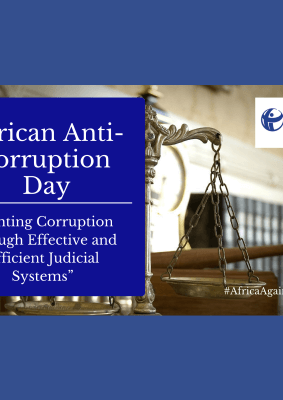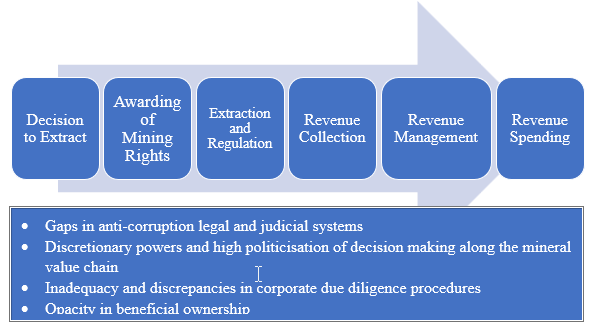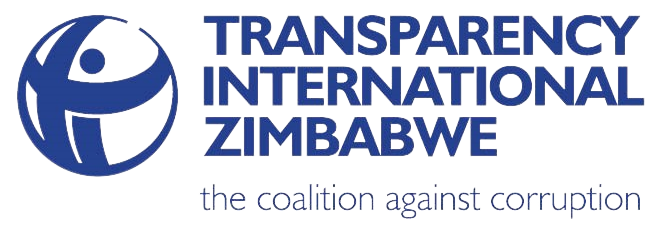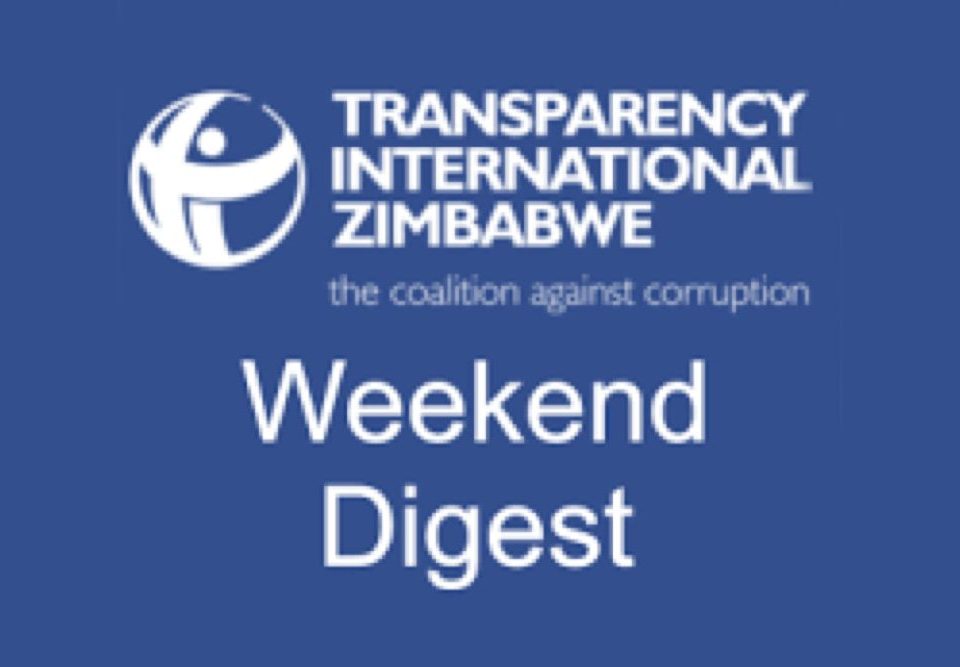
Commemoration of the African Anti-Corruption Day
July 11, 2020Zimbabwe: Cyber Security and Data Protection Bill would restrict anti-corruption watchdogs
September 11, 2020“Citizens have a right to know how their government is selling their resources”
[su_button url=”https://www.tizim.org/wp-content/uploads/2020/08/Improved-Natural-Resource-Governance.pdf” background=”#344f8e” size=”5″ center=”yes” radius=”5″]Download PDF[/su_button]
Introduction
After several years of poor natural resource governance in Africa, there has been a shift in attitudes and policies among stakeholders on the need to maximise on the potential of the extractive industry to transform African economies towards sustainable development. There are increasing calls for transparency and accountability in the extractive sector with many African governments adopting international best practices in the management of natural resources. It is anticipated that good governance in natural resources will result in the dearth of the ‘resource curse’ phenomenon which characterizes the extractive industry across the continent. Key reforms have been proposed and initiatives implemented. At the African Union (AU) level, the African Heads of State and Governments adopted the African Mining Vision in February 2009 as Africa’s own response to tackling the paradox of great mineral wealth existing side by side with pervasive poverty, (United Nations Economic Commission for Africa, 2020).
Furthermore, 24 African countries have joined the Extractive Industry Transparency Initiative (EITI) which has a membership of 54 countries. EITI is an established global standard to promote the open and accountable management of oil, gas, and mineral resources (EITI, 2020). The EITI Standard requires the disclosure of information along the extractive industry value chain from the point of extraction, to how revenues make their way through the government, and how they benefit the citizens. Two years in a row, the government of Zimbabwe (GoZ) has, through the Minister of Finance and Economic Development, Professor Mthuli Ncube expressed its commitment to joining the EITI. In his 2019 National Budget Statement, he reiterated the following;
“In order to move along with international best practices on achieving transparency in the management of natural resources, the country is considering joining the Extractive Industries Transparency Initiative (EITI)……” Minister Mthuli Ncube, 2018.
Sadly, despite these pronouncements, the government has not taken any steps towards joining the EITI. However, there is general consensus among stakeholders that there is need to enhance transparency and accountability in the extractive sector. For example, there was public outcry from civil society organisations and citizens a few days ago when Anjin Diamond Mining Company resumed operations in Chiadzwa, Manicaland- after being awarded fresh diamond mining claims by the GoZ. It is against this backdrop that this week’s Weekend Digest focuses on transparency and accountability in the extractive sector in Zimbabwe.
Transparency and Accountability in the Extractives Sector
There is no universal definition of the word transparency however, it is generally defined as “a situation in which business and financial activities are done in an open way without secrets, so that people can trust that they are fair and honest.” Kaufman and Bellver (2005) posit that for information to meet the transparency test it must be timely, reliable, and accessible to all relevant stakeholders. The information can be economic, social, or political. The lack of transparency and accountability in the mining sector has resulted in the state’s limited ability to optimize the mineral resource endowments. This has affected citizen participation in mineral resource management and explains the varying and unresolved conflicts between government, mining companies and the citizens. On the other hand, without frameworks for public disclosure of contracts and tax payments paid by the mining companies and those received by the government, the fight against illicit financial flows and corruption in particular remains a challenge. Therefore, transparency in this regard can serve as an anti-corruption tool. The effectiveness of transparency as an anti-corruption tool is hinged upon the government and relevant stakeholders availing all the necessary information in a manner that is relevant, accurate, understandable, and clear to facilitate monitoring, verification, and assessment of the processes. Unfortunately, contract transparency in relation to the extractives remains a major drawback in Zimbabwe’s extractive industry, despite constitutional provisions pertaining to access to information, transparency, and accountability. There is a lot of opacity along the mineral resource value chain from the decision to extract to revenue management.
Corruption Risks along the mining value chain 
Source: Transparency International
Contract transparency refers to the disclosure of information pertaining to any contract, license, concession, or other agreement governing the exploitation of natural resources. Emphasis is on the quality and detail of information availed to stakeholders on the rights awarded to extractive companies by the government. In this regard, it is the responsibility of the government at both the national and local levels to provide quality, disaggregated, clear and understandable information to various stakeholders along the mineral value chain consistent with section 62 of the Constitution of Zimbabwe Amendment (No.20) Act 2013. Section 62 provides that every person is entitled to access to information held by the state or by any of its institutions as long as the information required is in the interest of public accountability. It is therefore important to note that access to public information is an important requirement for enforcing accountability and good governance in general. Section 298(1)(c) of the constitution further imposes an obligation on the government to ensure that the burdens and benefits of the use of resources is shared equitable between present and future generations. This can only be achieved if the government discloses contracts that it has entered into with mining companies. Contract transparency (information on the obligations, rewards and rights awarded to mining companies) will inter-alia;
- Empower citizens, particularly communities in mining areas to hold the government to account over the responsible stewardship of natural resources thus reducing corruption risks in the extractive sector. As owners of mineral resources, citizens have a right to understand the terms of the extraction. When contracts remain secret, citizens and oversight agencies cannot properly monitor the implementation of transactions, placing the country at greater risk of corruption.
- Encourages public participation and enable citizens to hold mining companies accountable for human and environmental rights violations/ non-compliance.
- Promote fair competition between firms and mitigate corruption risks during licensing, contract awarding, and auctions by reducing information asymmetry and by extension ensuring the credibility of government negotiations.
- Enable citizens to hold the government accountable for revenue collection (royalties, licences, and taxes) and expenditure. Without this information it is difficult for citizens to participate in and influence the mineral regimes.
- Strengthen public and corporate governance, promote management of natural resources, and provide the basis for reforming the sector to ensure compliance with international best practices.
Whilst Section 315(2)(c) of the Constitution provides that an Act of Parliament must provide for the negotiation and performance of concessions of mineral and other rights to ensure transparency, honesty, cost effectiveness and competitiveness, currently there is no legal and policy framework for contract transparency in Zimbabwe. Instead of aligning the mining laws to the supreme law of the land, the Constitution of Zimbabwe Amendment (No 2) Bill, 2019 has the effect of taking away the oversight role of parliament in international treaties, conventions and agreements thus limiting transparency and accountability in the mining sector. Furthermore, there seems to be little effort on the part of government to fulfill the provisions of section 9 of the Constitution which provides that, the state must adopt and implement policies and legislation to develop efficiency, competence, accountability, transparency, personal integrity and financial probity in government at every level and in every public institution, and in particular—(b) measures must be taken to expose, combat and eradicate all forms of corruption and abuse of power by those holding political and other public offices.
Conclusion and Recommendations
Having made commitments to the African Mining Vision and the African Peer review mechanism and recently committing to joining the EITI, there can be no doubt that the government of Zimbabwe is aware of the benefits associated with good governance, transparency, and accountability in the mining sector. The current Mines and Minerals Act does not have provisions for public disclosure of contracts. The adoption of the Extractive Industries Transparency Initiative (EITI) would improve investor confidence in line with the Zimbabwe is open for business mantra and generate incentives for effective management of the extractives sector through increased transparency and oversight. Contract transparency in the extractive sector can minimise corruption risks and vulnerabilities thus complimenting local efforts aimed at improving the governance of mineral resources in Zimbabwe. Hence, Transparency International Zimbabwe:
- Implores the government to:
- Adopt provisions that provide for contract disclosure and online register of contracts in the proposed Mines and Minerals Bill.
- Adopt provisions that provide for performance monitoring of mining contracts.
- Develop frameworks for data collection and monitoring along the whole mining sector value chain.
- Expedite the adoption and implementation of the mining cadastre which will help in the generation of reliable information including mining titles, beneficial ownership, and mining contract registries.
- There is need for coordination among government departments to ensure that there is seamless flow of information to avoid mistrust and lack of public confidence on how mining resources are being governed.
- The Mines and Minerals Bill must provide for parliamentary oversight of Mining contracts in line with section 315 (2) (c) of the Constitution to ensure transparency and accountability in the negotiation of mining contracts.
Resist, Reject and Report Corruption

